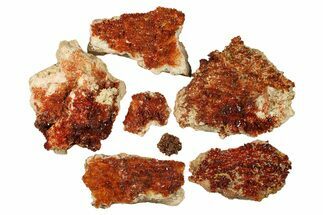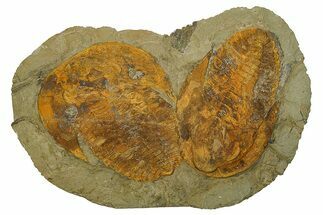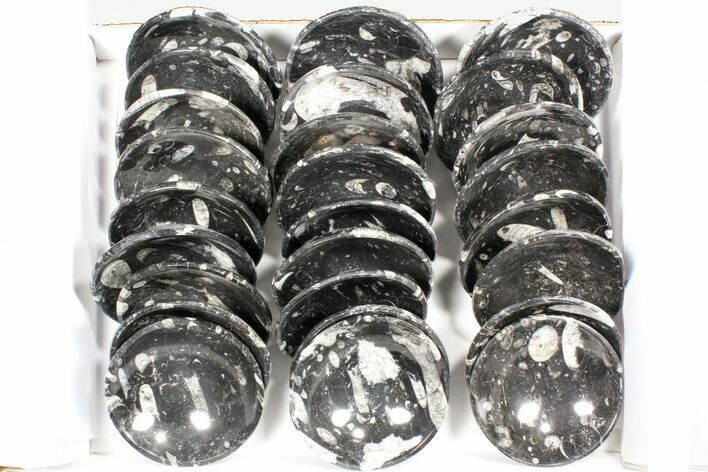This Specimen has been sold.
Lot: 4-1/2" Round Fossil Stoneware Bowls - 26 Pieces
These dishes come from the Atlas Mountains of Morocco that was a seafloor 450 million year ago. This very hard limestone was laid down over millions of years and is particularly rich in ammonites and Orthoceras. Tremendous labor was required to cut these out of solid rock, grind them to shape, and polished them to a glossy finish. Each dish is 4-1/2" wide. The case weighs about 11 pounds.
At the wholesale price of $100 for the case, these stoneware plates are less than $4/each. The photos are representative of what the dishes look like.
At the wholesale price of $100 for the case, these stoneware plates are less than $4/each. The photos are representative of what the dishes look like.
The fossils commonly known as Orthoceras are extinct "straight" cephalopods that lived during the Upper Devonian period around 370 million years ago. Like other cephalopods, they lived inside of their shells, had tentacles they could use to grab food, and used jet propulsion, squirting water to move. The rock containing them is quarried from the Atlas Mountains of Morocco and frequently polished to reveal the fossils and make decorative items with them.
While Orthoceras is the common name for these cephalopods, there are actually several different genera, including Michelinoceras and Arionoceras, found in association. However, unless you are one of the world's leading experts on fossil cephalopods, you probably won't be able to tell them apart.
While Orthoceras is the common name for these cephalopods, there are actually several different genera, including Michelinoceras and Arionoceras, found in association. However, unless you are one of the world's leading experts on fossil cephalopods, you probably won't be able to tell them apart.
SPECIES
Arionoceratid Nautiloid
LOCATION
Anti-Atlas Mountains, Morocco
SIZE
4.5 wide, 11 pounds
CATEGORY
ITEM
#78101
We guarantee the authenticity of all of our specimens.
 Reviews
Reviews













